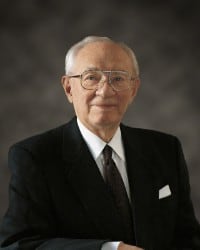
“Now a word to the single parents. … [You] carry exhausting burdens in fighting the daily battles that go with rearing children and seeing that their needs are met. This is a lonely duty. But you need not be entirely alone. There are many, ever so many in this Church who would reach out to you with sensitivity and understanding. They do not wish to intrude where they are not wanted. But their interest is genuine and sincere, and they bless their own lives as they bless your lives and those of your children. Welcome their help. They need to give it for their own sakes as well as for your sake.”
| Teachings of the the Presidents of the Church: Gordon B Hinckley
